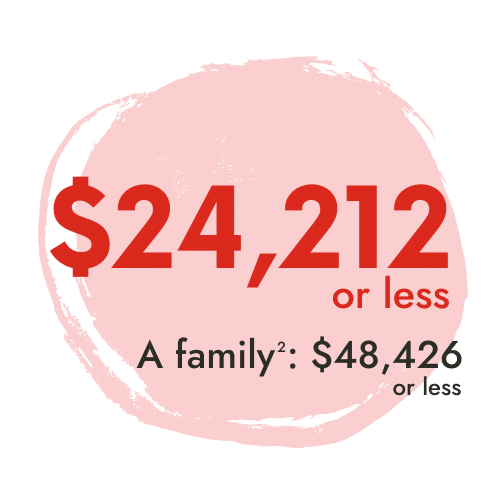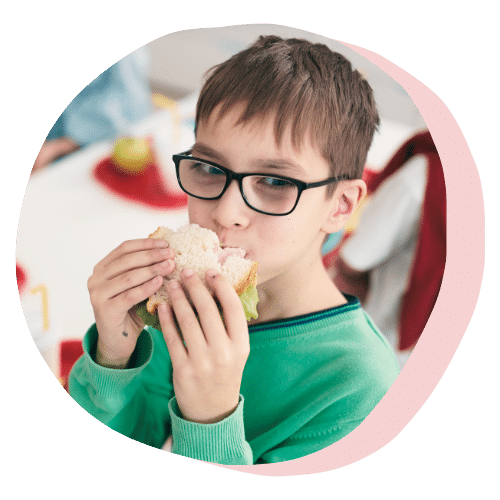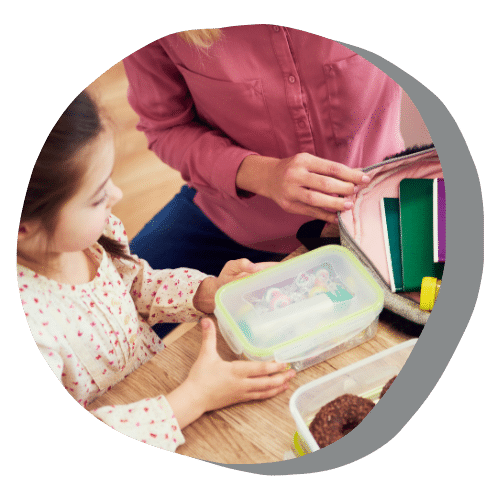A Harsh Reality
At the Heart of Our Mission
Greater Montreal is home to the majority (60%) of Quebeckers living in poverty.


How many people are in this situation?
315,000 people live below the low-income cut-off. Another 200,000 people earn only slightly more than this amount ($25,000, $26,000, $27,000) and are just as vulnerable to life’s uncertainties.
What does mean to be in a situation of poverty?
- It means not having enough money to meet your essential needs.
- It means living on a meagre budget with no buffer for unexpected expenses.
- It means worrying about the future, being under constant stress, and often suffering from isolation.

Shelter

Food

Clothing

Transportation
Today’s challenges are enormous for people living in poverty:
the housing crisis, rising food costs, financial anxiety, and mental distress.
What is the annual after-tax income of a person in a situation of poverty?

Poverty threshold in Greater Montreal

The MBM is a minimum threshold
Based on the Market Basket Measure (MBM), Canada’s official measure of poverty. The MBM is based on the cost of a specific basket of goods and services that cover basic needs: housing, food, clothing, transportation and other necessities. It is calculated based on region and number of people in the household.
The MBM is a minimum threshold: being slightly above it does not mean you are out of poverty. People close to this threshold are also in a vulnerable situation.
Which people are most at risk of poverty?
Belonging to specific groups, such as a visible minority, as well as individual life circumstances, such as immigrating, being a single parent, living alone or not having a high school diploma, are all factors that increase the risk of poverty.


Growing up poor: challenges of life
Growing up poor increases the risk of accumulating problems throughout life.
Starting from birth, children born to poor families are disadvantaged.
They often live in areas with higher unemployment and school dropout rates and where people have worse health outcomes and shorter life expectancies.
They experience food insecurity more often.
More people in this situation start school with a delay and leave school before they graduate. Without a diploma, they risk having a lower average annual income during their working life, going on unemployment more often, experiencing poor living conditions, and having shorter lives.
Dropping out of school: A vicious circle
Poverty increases the risks that students drop out, which in turn increases their risks of poverty.
Something can be done
Centraide supports a network of over 375 community agencies and projects that work throughout the Greater Montreal territory. They work in four priority areas of action.
Related pages:
1. Based on the Market Basket Measure (MBM), the official measure of poverty in Quebec and Canada.
2. Two adults and two children.


